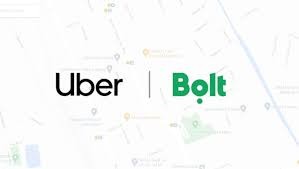Fuel Crisis: Uber, Bolt Drivers Issue Seven-Day Strike Ultimatum Over Poor Working Conditions
A proposed peace meeting between e-hailing firms and their drivers who are operating under the various app-based platforms over issues around poor pay and the prevailing fuel prices situation ended in a deadlock on Friday.
It was gathered that both parties refused to cede grounds during their negotiation at the meeting, Punch reports.
The meeting followed an all-out protest to the doorsteps of the ride-hailing companies by the drivers who had declared a nationwide strike to protest what it considered an unacceptable price review in light of the significant increase in the price of petrol.
The Chairman, Media and Publicity Committee of the union, Jossy Olawale, said although some of the e-hailing firms made some concessions to accommodate the current operating environment, the considerations were still far off the mark.
He also said the union had called off the industrial action on a temporary basis, but would embark on a total and indefinite strike in seven days if the conditions presented on Friday were not met.
“We do not have any resolution with them. They said they would increase the price (fare). The people that met with them in Lagos said they increased the price by N7, and when you look at N7 it’s just about 0.7 per cent increase or thereabouts.
“Before the increase in fuel price, it was N102 per kilometre, but since we started our strike, they upped it to N140, which is about 40 per cent increase. We are actually asking for a 200 per cent increase, which is about N300 per kilometre. We want to use that as a negotiation strategy because we know they won’t do up to that. If they are able to do 100 per cent increase, it’s fine, but they only did 40 per cent.
“We also requested for a 50 per cent reduction of their 25 per cent commission. They didn’t even say anything about it. Though they said they would open the door of negotiation. Lastly, they still left the base fare at N800. We are asking that the base fare should be N2000 flat.
The commission should be cut by half from 25 per cent to 12.5 per cent.”
Also speaking, the President of the union, Damola Adeniran, said the union would not budge on the demands presented to the cab-hailing firms, as anything short of those terms would not ensure profitability for the drivers.
He said, “We maintain our stand of N2000 base fare, 200 per cent increase in the price per kilometre and a 50 per cent reduction in commission. We also want collective bargaining and at the same time profiling of riders. We want them to reopen the accounts of drivers who have been blocked unjustifiably, without fair hearing.”
Speaking with Punch, the Country Manager for Uber in Nigeria, Tope Akinwumi, said the company had implemented two upward reviews of fare prices in the wake of the increase in the price of gasoline.
He said, “Drivers are at the heart of everything we do and we continue to work on initiatives and engage with drivers to help make Uber the app of choice for drivers while maintaining an affordable service for riders.
“Following an in-depth review of the current fuel subsidy removal, Uber updated fares on the 3rd and 9th June on the app to reflect existing economic conditions. We believe these changes have helped better support drivers in increasing their earning opportunities.
Furthermore, we lowered the service fee in February 2022 from 25 per cent to 20 per cent to help enable better earning opportunities for drivers.”
When contacted, a top official of Bolt refused to comment on the grounds that he had no authority to speak on the matter.


